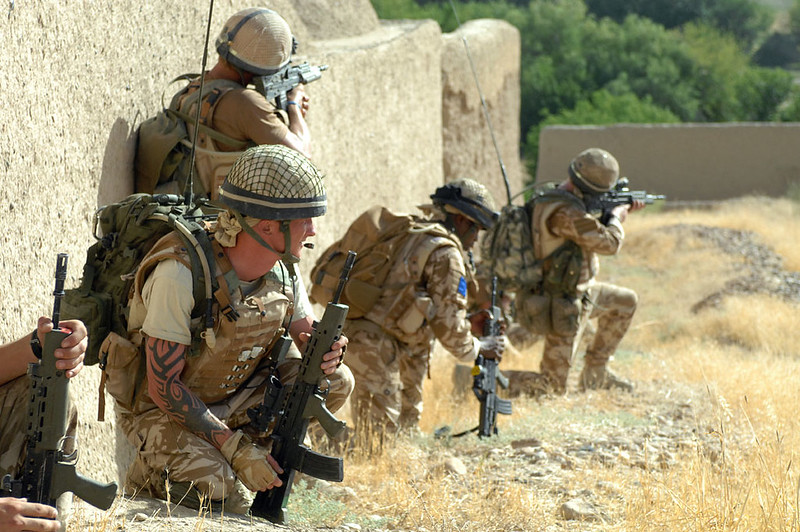
Photo of British soldiers in Afghanistan: Photo Credit Resolute Support Media
Recent documents in the British High Court reveal allegations of a “rogue” British SAS (Special Air Service) unit carrying out night-time executions of civilians in Afghanistan.
A collection of files, previously withheld from the UK court, have brought to light communications between high ranking officials of the special forces discussing the murder of over 33 Afghan civilians in 11-night raids carried out by a SAS unit over the course of 3 months.
The non-disclosure of this collection of emails, notes, and reports in the initial stages of this legal case has caused the judge to demand a full explanation from UK Defense secretary, Ben Wallace.
Documents viewed by The Sunday Times reveal discourse between officials regarding a particular incident of a quadruple murder which is now at the heart of the case:
On 16 February 2011, the SAS unit in question arrived in the southern Afghan village of Gawahargin on the helicopter. They were in search of a young man, Saddam, suspected of being a member of an enemy gang responsible for roadside bombs. They raided his family home with laser gunsights ready, forcing all of the family to step out into the night. They detained the women and children, blindfolded them with black hoods and left them tied up in a part of the compound. They next heard the gunfire that killed their male relatives - Saddam, his brother, his father, and cousin.
Two years later, Saddam’s uncle pressed charges against the UK government for unlawful detention and mistreatment after having been imprisoned for 20 days from the night of the SAS raid and being released without charge. These serious allegations made were passed onto the special investigation branch of the Royal Military Police who launched their investigation in March 2014.
The emails and notes now presented to the High Court discuss the events of the incident in abbreviations, and also mention confirmation from soldiers of an Afghan partner unit that the family executed were not members of the Taliban but teachers and farmers.
The Ministry of Defence has responded to recent media coverage:
'This is not new evidence, and this historical case has already been independently investigated by the Royal Military Police as part of Operation Northmoor.”
'These documents were considered as part of the independent investigations, which concluded there was insufficient evidence to refer the case for the prosecution. The Service Police and the Service Prosecuting Authority, of course, remain open to considering allegations should new evidence, intelligence or information come to light.’
Read more from The Times and The Canadian
We need your support
Sri Lanka is one of the most dangerous places in the world to be a journalist. Tamil journalists are particularly at threat, with at least 41 media workers known to have been killed by the Sri Lankan state or its paramilitaries during and after the armed conflict.
Despite the risks, our team on the ground remain committed to providing detailed and accurate reporting of developments in the Tamil homeland, across the island and around the world, as well as providing expert analysis and insight from the Tamil point of view
We need your support in keeping our journalism going. Support our work today.
For more ways to donate visit https://donate.tamilguardian.com.

